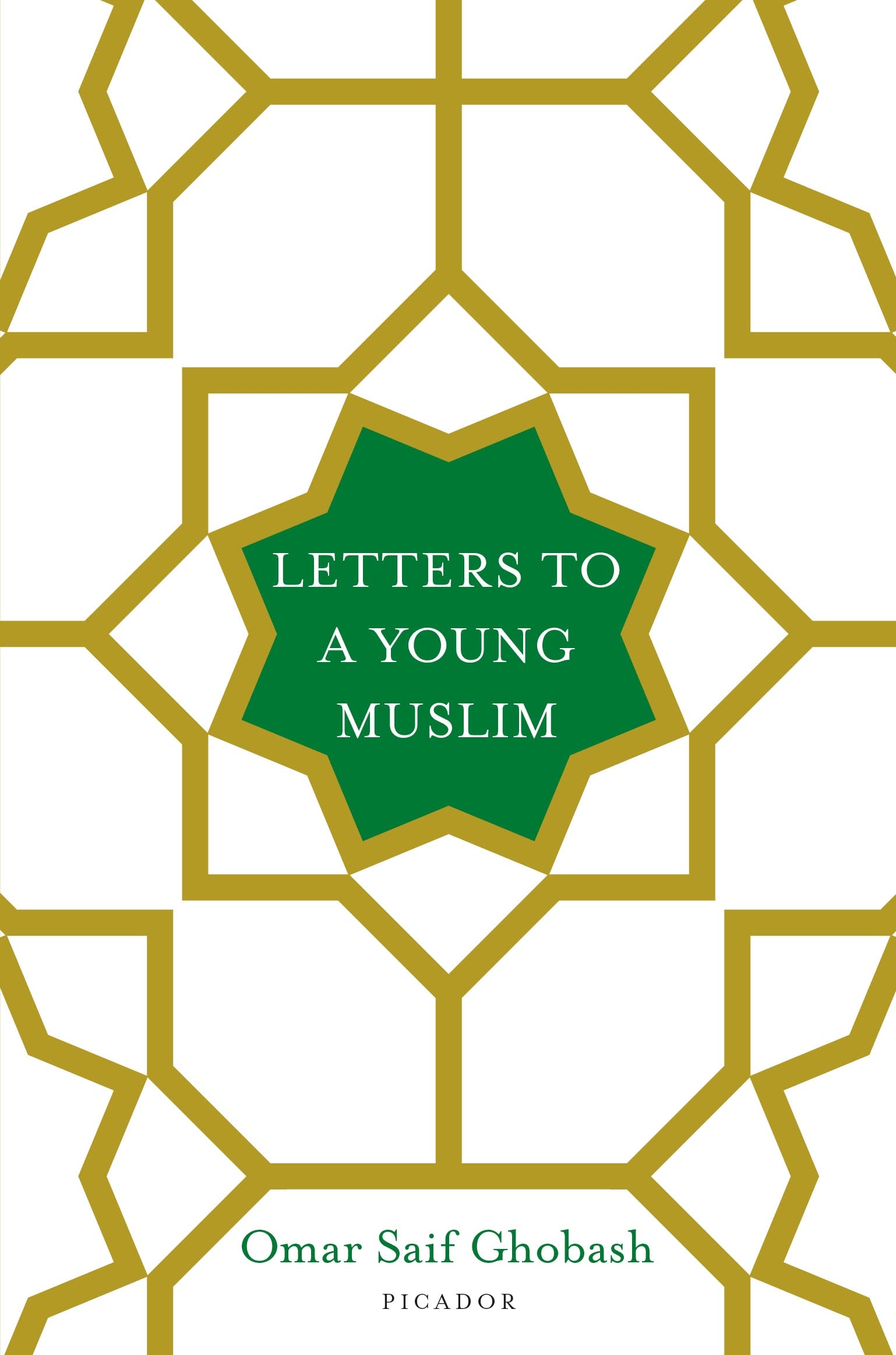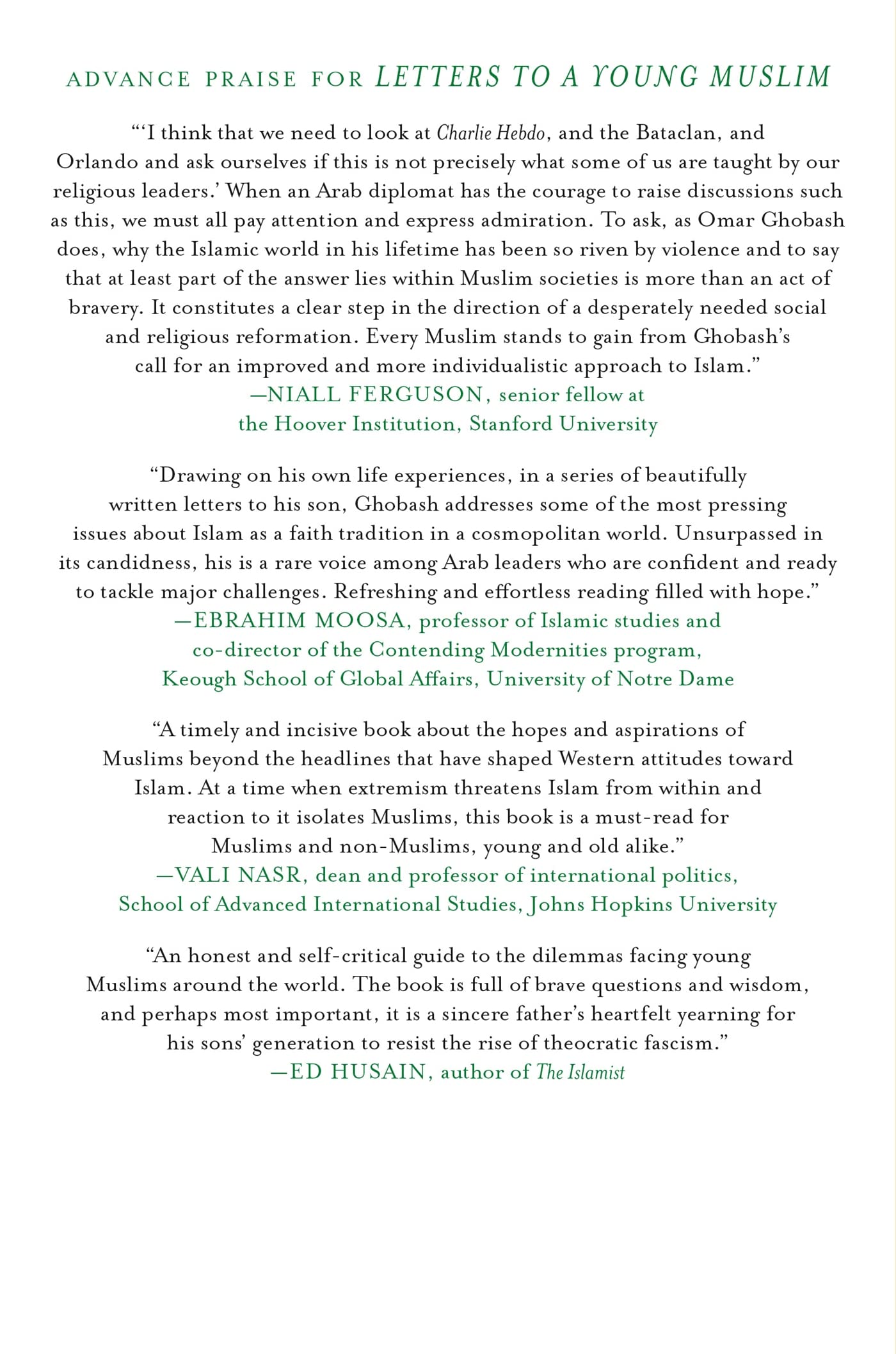


Full description not available
N**T
Insightful and thought-provoking
In a series of short letters addressed to his son, Omar Saif Ghobash touches on many of the pressing issues the world faces today in the context of a Muslim individual. He draws from his own personal experiences, as well as general Arabian history to pose difficult but important questions about what it means to grow up, to forge your own beliefs and identity in the 21st Century. I found this work to be very insightful and valuable even as a non-Muslim. It puts into perspective the conflict between extremists and the rest of the Muslim community (a vast majority). Having been an expat teenager in Bahrain during the Arab Spring, I have witnessed the growing violence of the Shia-Sunni conflict first hand. Because I struggled to fully understand it at the time, I thoroughly enjoyed reading about the historical context of these fundamental differences in the book. Ghobash introduces the schools of thought that is rooted in the major sects of Islam in order to raise questions about how much sense it makes to dogmatically follow the teachings at face value today.Individualism is a theme in many of the letters. Ghobash conveys the importance of a sense of personal responsibility, the questioning of presented information, and an open-minded pursuit of knowledge in multiple contexts. The fact that Ghobash himself is half-Arab, half-Russian, and was educated in the West (UCL and Oxford) certainly played a role in this stance. While he does discuss several sensitive topics such as gender equality and sexuality, he presents his ideas and questions in a thought-provoking and inoffensive way. He does not try to shove any idea down your throat, but rather encourages a non-violent debate of ideas, acceptance of individual differences, and a pragmatic moral compass that is iterable as we look to coexist amongst different peoples, cultures, and beliefs.An important read that I would recommend to both my Muslim and non-Muslim friends.
S**I
The indpendent thinking man's approach to being a Muslim
A new approach to looking at how one might look at Islam as a Muslim. It is both descriptive, giving form to ideas hitherto consider taboo and therefore remained unuttered in public, as well as proscriptive, providing concrete ideas on alternative ways a Muslim might think of their religion.To be clear this is not a book arguing for or against Islam, nor is it an apologist book repeating the mantra that the bad things done in the name of Islam are not done by true Muslims. The author clearly sees a serious problem in how Islam is interpreted and practiced today, and provides alternative ways of thinking about it.The reviews that complain that the author does not quote the Koran completely miss the point, the whole point of the book is how to separate oneself as a Muslim from the clerics who insist that they are the sole arbiters of what is Islamic. The important point is that we as Muslims are allowed to think for ourselves without reference to the Koran or the self appointed guardians of the understanding of Islam.The other issue, of why it was published in English first, is in my opinion because it is aimed at Arab millennials who predominantly speak English as a first language. The book does not pretend to try to convert the hard core Muslims who do not want to change their minds, it is aimed at giving those who still are ready to think for themselves the intellectual framework and tools to continue evolving their individual thoughts and their individuality.Well worth the read.
G**S
A book by any other name would still be a must read….
This book could as easily have been titled, with a few adjustments, “Letters To A Young Christian”, or even “Letters To A Young Person”. While the focus is on what it means to be a Muslim, the advice given is advice all of us should listen to.Ghobash documents his coming of age, and how he began to question the things around him. Rather than succumbing to what he was hearing from “the establishment”, he opened himself to other ideas and took on a larger world view of not only Islam, but of life.The letters help to correct the misconceptions many have of the Muslim community. The stereotypical Muslim is no more accurate than fundamentalist Christians representing Christianity. Ghobash’s discussion on the role of women in society is a good example of this. His thoughts on how Muslims view the divisions within their community, and how they view the West, are eye opening.While promoting education, discussion, sharing ideas, listening to others, respecting others, questioning, as ideals for a young Muslim, these are the things all of us could aspire to. I did find it interesting that Ghobash states the reason Muslims do not honor the Bible is because of the inaccuracies in it. For him, the Quran is the sacred, infallible text. Scholarship questions that bias.This book was a surprise in that it contains so much great advice on life, not just religion. I am going to reread it, more slowly the second time, and ruminate over the thoughts presented.This one gets five stars, and is a must read.
Trustpilot
3 days ago
2 weeks ago